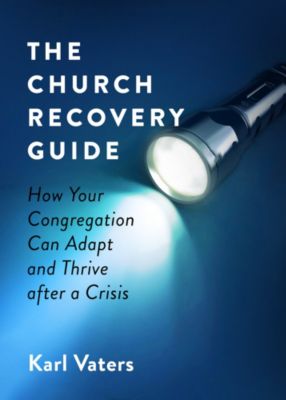
By Aaron Earls
Even with the recent resurgence of COVID-19 cases across the U.S., the vast majority of Protestant churches are holding in-person worship service.
That has not translated, however, into churchgoers returning in pre-COVID levels, according to Lifeway Research.
Most Sunday morning crowds are less than 70% of what they were in February. Only 1 in 7 churches say they are close to their early 2020 attendance numbers.
So, where does that leave the vast majority of American churches? Not only struggling to reach new people, but also working to re-reach many previously connected people.
The vast majority of American churches are not only struggling to reach new people, but also working to re-reach many previously connected people. Click To TweetTo be clear, some physically absent church members are still spiritually connected and will return as soon as they’re able.
Unfortunately, this moment may have led some previously regular churchgoers to grow accustomed to life apart from a local congregation.
There’s no foolproof method guaranteed to bring everyone back—especially while the pandemic poses a life-threatening danger—but there are some steps your church can take that may encourage wary members to return.
1. Make things as safe as possible.
If you want people who are concerned about COVID-19 to return, do everything in your power to make your church as safe as you can.
Find out what local, state, and national health leaders are advising. Then meet and even exceed those guidelines as often as possible.
Religious convictions and governmental regulations may clash at some points. In those areas, churches should choose to follow God rather than man, but that’s not the case most times.
Remember, this is not about your preferences for how you wish things were. This is about how you can reach those staying away from your gatherings because of health concerns.
2. Make your safety as visible as possible.
It’s not enough to make things safe. People need to see that things are safe.
Let people know all of the measures you’re taking to prevent the spread of COVID in your congregation.
Talk about all of the extra cleaning you’re doing in your kids’ area. Make it clear that you’re practicing social distancing and wearing masks as much as possible.
Have pastors and other key leaders model safe behavior while they’re at church.
Your church could be doing everything possible to keep congregants and visitors safe, but if no one realizes it, cautious individuals may still stay away.
3. Over communicate.
Yes, it may feel like you are sending out too many texts and making too many phone calls.
Yes, some of your churchgoers may even get annoyed at yet another email explaining your church’s ever-changing plans.
But most of the people who will feel overwhelmed are the ones who are most likely still connected to your church. They are tuned in to your message, so they feel like they hear it constantly.
To reach those who aren’t currently connected, you’ll have to communicate frequently through numerous different methods.
You can’t simply make announcements at the end of your service and assume everyone now knows what’s happening.
Make announcements, but also send emails, post on social media, text, make phone calls, send postcards, whatever it takes so everyone in your congregation (including those who haven’t physically attended in months) stays informed.
4. Delegate responsibilities.
Maybe the people in your church are tired of hearing from their pastor, but how often have they heard from their small group leader or a deacon?
Many pastors feel overworked and underappreciated during the pandemic, what better time to give other congregational leaders an opportunity to serve? Click To TweetMany pastors feel overworked and underappreciated during the pandemic, what better time to give other congregational leaders an opportunity to serve?
Use numerous leaders from numerous points of contact to stay connected to socially distanced congregants.
5. Get creative.
Use these “unprecedented times” to be unprecedented in your strategy and outreach.
Of course, you’ve “never done it that way before” because you’ve never been in a situation like this before.
Of course, you’ve “never done it that way before” because you’ve never been in a situation like this before. Click To TweetTry new methods of communicating and teaching. How can you change up your service to make it different (and possibly safer), while remaining faithful to Scripture?
Easter probably looked different this year. Your normal fall outreach ideas may not be possible. In all likelihood, changes will be needed for Christmas as well.
Could you do outdoor services? Drive-in worship? Empower families for a house church model? Find new ways to stream your sermons?
There is no better time to try something new than in a moment when everything already seems new.
6. Capitalize on virtual reach.
The goal is to see all of your regular attenders return and bring new people with them to in-person services, but until that happens use what you have.
If you have members staying at home and watching through Facebook, YouTube, or some other streaming service, take advantage of that.
Encourage people to share sermons online to expand the potential audience.
Some churches have seen families visit in person after discovering and watching services online.
That may not happen for you, but make use of every avenue you have to present God’s truth and connect people to your church.
7. Adjust expectations.
You are not a failure if the calendar rolls over to 2021 and you still haven’t seen your congregation fully return.
Again, there is no guarantee that everyone will quickly return even if you do everything right.
More than anything else, this time should remind everyone in ministry that you don’t cause the harvest to grow and bear fruit. That’s God’s job.
You are called to be a faithful worker in the harvest.
Don’t change what God has called you to do; change how you define success.
So much has changed since the pandemic spread around our world, but God’s definition of a successful pastor hasn’t. Click To TweetSo much has changed since the pandemic spread around our world, but God’s definition of a successful pastor hasn’t.
Be faithful.
Do all you can to re-reach those churchgoers who’ve been hesitant to return and reach new people in your community.
But ultimately, after you’ve done the work and been faithful to your calling, rest in Christ’s finished work on the cross and God’s love for you.









